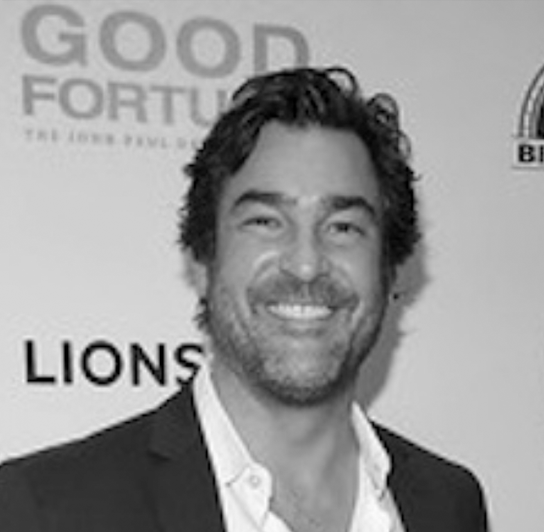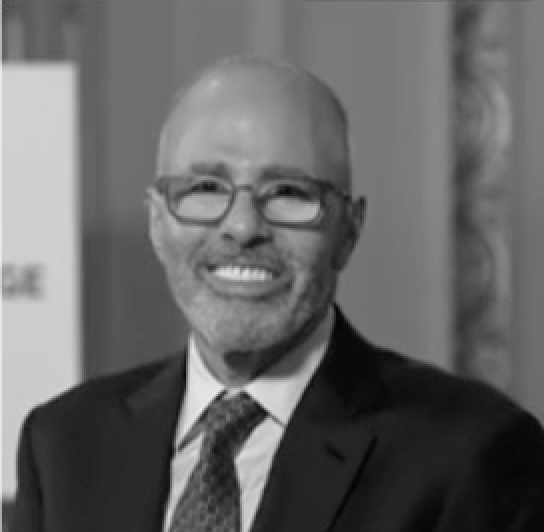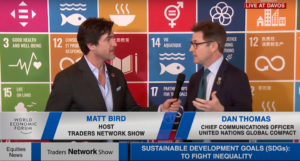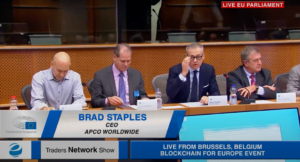Fr. Greg Gresko on the Balance of Humanity and Technology – Humanity 2.0
Contributed by: Show Editorial Team
Father Gregory Gresko Professor of Theology at Pontifico Anteneo S. Anselmo interview with Matt Bird at Humanity 2.0 (Vatican City)
HIGHLIGHTS
- Listening involves being able to respond not react
- We are in a period of technological revolution and must keep humans at the center of our goals
- Authentic human encounter is growing more important during this technological age
Could an algorithm be used in divorce court? Theoretically, yes, said Fr. Greg Gresko, Professor of Moral Theology at Pontifical Anteneo S. Anselmo. Theoretically, an algorithm could compute data and spit out decisions about alimony, childcare, etc. But, morally, Gresko explained, that’s an entirely different story.
“AI can’t make a moral decision. Only human beings can make a moral decision,” Gresko told Matt Bird, Host of the Traders Network Show, at the 2019 Humanity 2.0 Forum at the Vatican.
Technology can’t make a moral decision, Gresko said, because it is a thing rather than a sentient being. Morality is a concept that applies uniquely to humans, Gresko said during a discussion with Bird that centered largely on the alignment of technology and people.
Gresko’s primary takeaway was that technology should only advance as far as it can serve people—once it is the end in it of itself, rather than a means to an end, it should not be developed, he explained.
“We have to look at the individual,” Gresko said. “If a technology is being implemented that does not respect the dignity of a human person, it should not be implemented.”
Gresko went on to say that technology should also not be implemented if it negatively impacts authentic human encounters, since interactions are essential to the human experience.
“Human beings, when they lose that, they lose a certain part of their humanity. So if a technology is going to put that at risk, measures need to be taken to safeguard from that risk,” he said.
Take ratings systems, for instance, in which users can assign stars or numerical values to services rendered. One off day could lead to a bad rating for a rideshare driver, which could lead to fewer customers in the future, which could send that driver on a downward spiral. Such a negative trend would have been spurred by a fleeting moment in that driver’s life. On the flip side, a savvy user could manipulate a ratings system to garner undeserved popularity. In other words, technology doesn’t always capture a person’s essence, and relying on technology could be a very slippery slope, Gresko and Bird discussed.
Unfortunately, Gresko said, we live in a world that does not always respect the individual, especially when it comes to technological advances.
“The danger of technology accelerates in its development almost at warp speed. And man is reflecting less and less on the impact of that technology and whether that technology should be implemented,” he said.
That reflection isn’t occurring because market forces often push companies to think more about profit than people, Gresko said.
“The danger of capital markets is to forget the humanity of a person. The church, in its social moral teachings, [believes] that the human being cannot be forgotten,” he said. “Capitalism cannot be completely unbridled. Yes, there is a free-market economy, but it can’t be a free market without responsibility for the common good. It can’t be a free market that is so unbridled that the needs of the weakest and the poorest are forgotten.”
(Written by Andrew Waite; Editing and revisions by Nicole Liddy)
PR and Media By: CommPro Worldwide
Links: Original Article
All rights reserved to the Traders Network Show. No part of this publication may be reproduced, distributed, or transmitted in any form or by any mean including; photocopying, recording, or other electronic or mechanical methods, without prior written permission of the publisher, except in the case of brief quotations embodied in critical reviews and certain other noncommercial uses permitted by copyright law. For permission requests, write to the publisher addressed “Attention: Permissions Coordinator”








